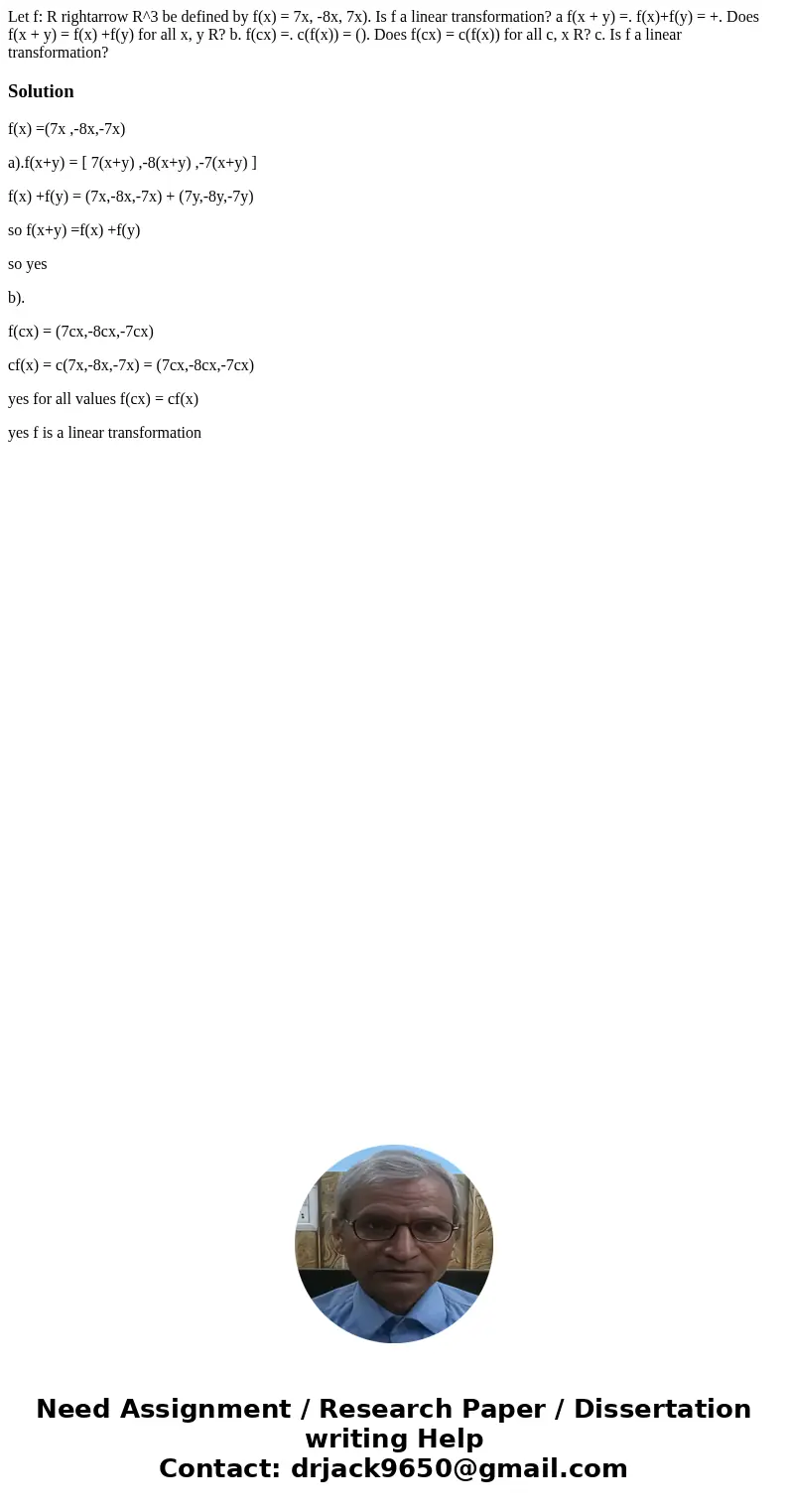Let f R rightarrow R3 be defined by fx 7x 8x 7x Is f a line
Let f: R rightarrow R^3 be defined by f(x) = 7x, -8x, 7x). Is f a linear transformation? a f(x + y) =. f(x)+f(y) = +. Does f(x + y) = f(x) +f(y) for all x, y R? b. f(cx) =. c(f(x)) = (). Does f(cx) = c(f(x)) for all c, x R? c. Is f a linear transformation? 
Solution
f(x) =(7x ,-8x,-7x)
a).f(x+y) = [ 7(x+y) ,-8(x+y) ,-7(x+y) ]
f(x) +f(y) = (7x,-8x,-7x) + (7y,-8y,-7y)
so f(x+y) =f(x) +f(y)
so yes
b).
f(cx) = (7cx,-8cx,-7cx)
cf(x) = c(7x,-8x,-7x) = (7cx,-8cx,-7cx)
yes for all values f(cx) = cf(x)
yes f is a linear transformation

 Homework Sourse
Homework Sourse